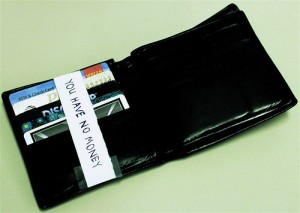 November is half over. I should be halfway through my novel. Many of you might have assumed this was coming, but I’m nowhere near halfway through a novel. In fact, I haven’t made it past 5,000 words.
November is half over. I should be halfway through my novel. Many of you might have assumed this was coming, but I’m nowhere near halfway through a novel. In fact, I haven’t made it past 5,000 words.
When I started the National Novel Writing Month project, I said it was an experiment. Unfortunately, it hasn’t bee a successful one.
I don’t want to give excuses, but I can give an explanation. I was very ill for the first week of November, which put me way behind. Then, well, I got lazy. Every night I came home from work, finished my to-do list for this blog (which remained my top writing priority), and then I just couldn’t bring myself to write 1,500 more words after sitting in front of a computer writing all day for work.
I was pretty down about it at first. As much as I wanted to “win” NaNoWriMo, I just didn’t have the energy. I’m still coughing a little, and I’m still recovering from the virus I picked up Halloween weekend. A lot of my interests and responsibilities have been on the back burner for the past couple weeks as I continued to recover. I haven’t been to the gym or taken any real photographs for this entire month. It’s been all I could do to keep up with this blog and my job.
I said I wouldn’t give excuses, but I won’t let myself feel bad about it either. Instead, I choose to see it as a learning opportunity. I did learn some things, even if I didn’t write the novel I wanted to write.
Just because you want to do it doesn’t mean you have the time.
A long time ago I had to learn to say no when I didn’t want to do something or take on more responsibility. But I never considered the fact that I could be my own worst enemy. I have to learn to recognize my own limitations and acknowledge that a 50 hour work week, daily blog, photography hobby, exercise, husband and household are already a lot of work. This year just wasn’t the right time to add on another responsibility, no matter how much I wanted it. I was setting myself up for failure.
Not right now doesn’t mean never.
I love to set goals for myself and accomplish them. But I have a now or never mentality that holds me back. Just because I have too much going on right now doesn’t mean I’ll never write my 50,000 word novel. Just because it can’t happen this November doesn’t mean it won’t happen next November (or even next July). There is no time limit. There are no rules. If I want to accomplish something, I will do it. I just need to learn that it doesn’t always have to be right this second.
Acknowledge your own accomplishments.
The whole point of participating in NaNoWriMo was to force myself to write creatively every day. But just because I pushed the project aside for now doesn’t mean I failed. The volume of writing I do for this blog is nothing to sniff at. So many blogs are started and abandoned (I’ve done it myself too many times to count). I should be proud of myself for maintaining a blog for over a year, and publishing about 3,000 words a week on top of who knows how many words I write for work every week.
The point is, if there’s a goal you’ve missed or an accomplishment you gave up, it doesn’t mean it’s over. Learn to accept your limitations, find the right time to pursue your goals, and never give up. But don’t waste time and energy being mad at yourself for putting things on hold.




